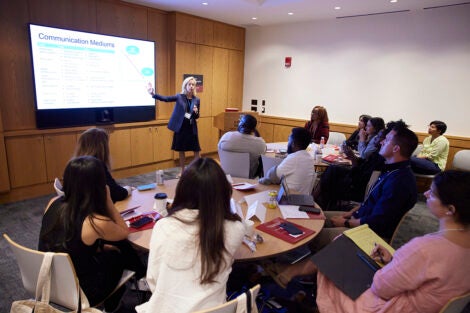August 9, 2023 – When Khalida Himes got the first email from Harvard T.H. Chan School of Public Health last winter, she deleted it.
She was a school counselor in Illinois, posting on TikTok as @sassyblacksocialworker, and she couldn’t imagine why Harvard would be reaching out to her. The next week, though, she got another email, with a second invitation to participate in the Harvard Chan School Creators Summit on Mental Health. “I started to think, ‘Hey, maybe this is for real,’” she said.
It was.
Over the past six months, Himes and two dozen other social media influencers who post regularly on mental health—with a combined audience of 20 million—have had a rare opportunity to connect with Harvard Chan faculty and experts on effective communication. The summit, organized by the Center for Health Communication (CHC), aims to improve the quality of mental health information on social media by encouraging influential creators to share evidence-backed insights and solutions.
“We’re never going to be able to reach everyone who needs mental health care one-on-one,” Amanda Yarnell, CHC’s senior director, told creators from across the U.S., Canada, and India who came to Boston for two days of in-person meetings on August 3-4, following a series of virtual panels with faculty. “We’re going to have to learn to protect and promote mental health across large populations. That’s where you come in.”
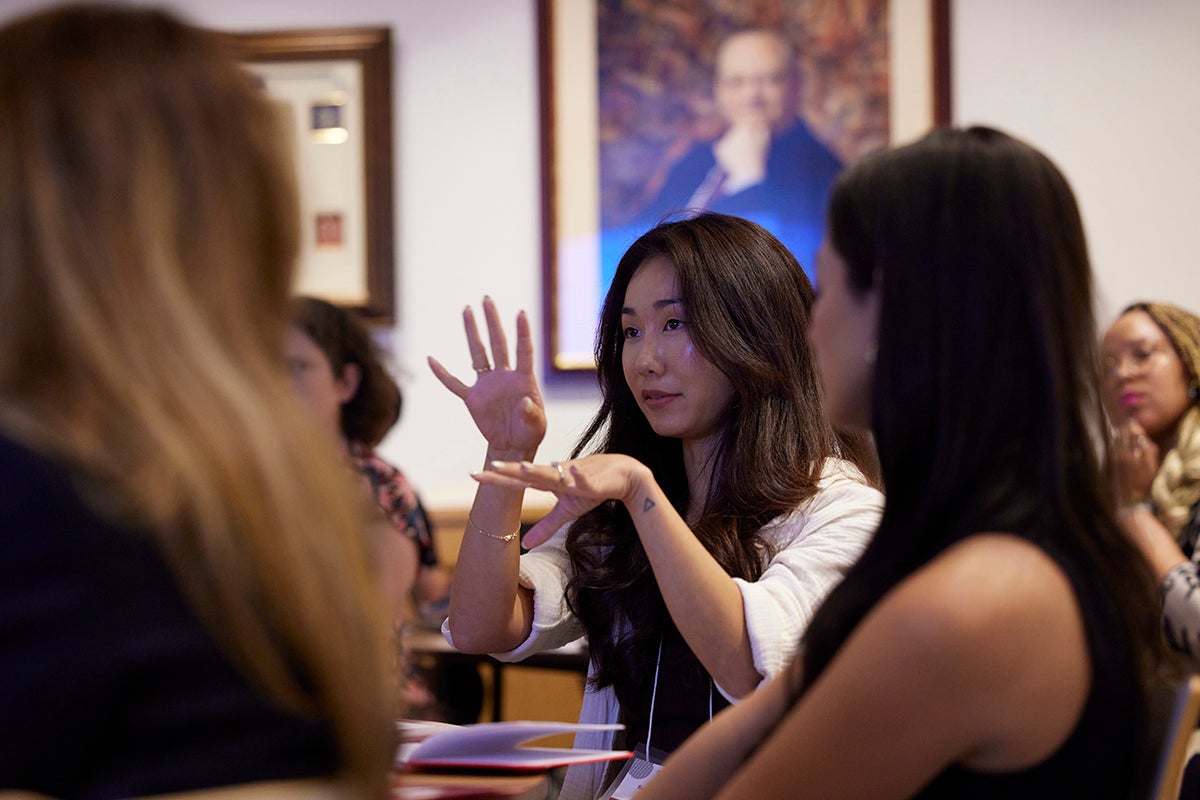
As the August sessions wrapped up, Samantha Chung—a life coach who posts as @simplifying.sam and has more than 785,000 followers on TikTok—said, “This is going to completely transform my content. I’m leaving here realizing that I’m a public health leader.”
“The things I’ve learned here, I want to give to my audience,” added Rachel Havekost, who posts about divorce recovery, eating disorders, depression, and more.
Reaching today’s new media gatekeepers
The CHC has worked for decades to leverage mass communication to advance public health goals, most notably with the designated driver campaign in the late 1980s and early 1990s. CHC’s director at the time, Jay Winsten, persuaded Hollywood studios and TV networks to integrate storylines about designated drivers into their productions to normalize the concept. The campaign worked: Over four years, alcohol-related traffic fatalities in the U.S. dropped 25%.
In today’s fractured media environment, creators on platforms like TikTok and Instagram are the “new gatekeepers” of news and information, Yarnell said—every bit as influential as the major networks, or more so.
Many teens and young adults use the platforms as search engines, preferring to learn about new topics through creator videos rather than by reading traditional news sites or scanning Google. The platforms’ reach is staggering: TikTok videos with the hashtag #mentalhealth have been viewed nearly 44 billion times, according to the Washington Post. Not surprisingly, however, misinformation abounds.
That’s where the Creators Summit on Mental Health comes in.
Yarnell, who joined Harvard Chan School in early 2022, was eager to connect creators with mental health researchers and teach them to assess and share strong science. She also wanted to evaluate the potential impact of this training on their content through a randomized controlled study.
So she asked a small team of students led by Meng Meng Xu, MPH ’23, and Connor Dowd, a Harvard College undergraduate, to immerse themselves for a few months in TikTok to identify roughly 100 creators who specialized in mental health, shared high-quality content, and had robust and diverse audiences. About half were licensed mental health professionals; the rest created content from their lived experience.
CHC’s research team then randomly assigned the creators to either a control group or a “treatment” group. Creators in the control group were not contacted. The treatment group was divided in two: Half were invited to attend the summit, which started in April with a series of virtual Q&As with Harvard Chan faculty and continued with the in-person sessions in August. Those who attended also received additional supports, including a dedicated Slack channel and digital tool kits summarizing the faculty panels. The creators in the other half of the treatment group received only the digital tool kits.
A research team led by Matt Motta, an assistant professor at Boston University School of Public Health, and Yuning Liu, a Harvard PhD candidate in computational social science, is now evaluating the creators’ content for any changes after their exposure to the faculty and/or the tool kits. The team, which also includes Yarnell, hopes to publish their results this fall.
Forging partnerships between creators and academics
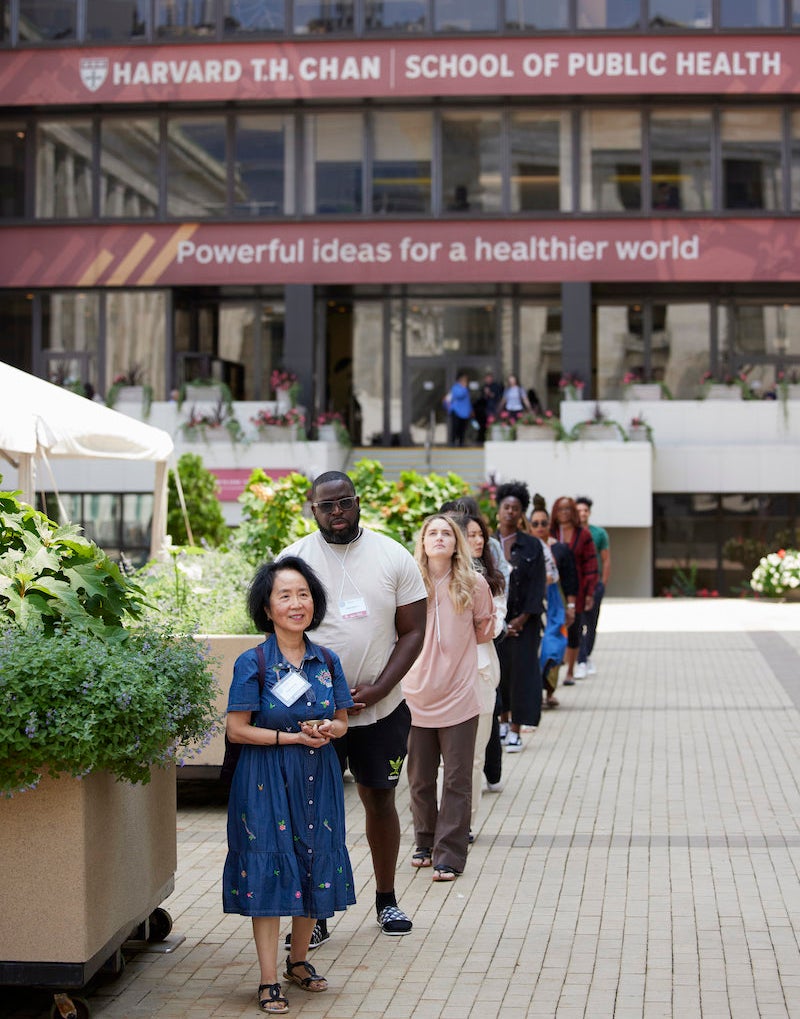
The August event included a lesson in the science of mindfulness and a short mindfulness walk led by Lilian Cheung, director of mindfulness research and practice in the Department of Nutrition; a highly interactive discussion about the cognitive impacts of indoor air pollution with Joe Allen, associate professor of exposure assessment science; and a master class on message framing taught by Rebecca Robbins, an assistant professor at Harvard Medical School.
The creators also attended a panel on men and mental health livestreamed from the Harvard Chan Studio and a fireside chat featuring Phil Schermer, the founder and CEO of Project Healthy Minds, NBC’s Carson Daly, co-host of The Today Show, and James Holt, executive director of The Archewell Foundation.
Throughout the August event, the creators had opportunities to talk with faculty one-on-one and in small groups.
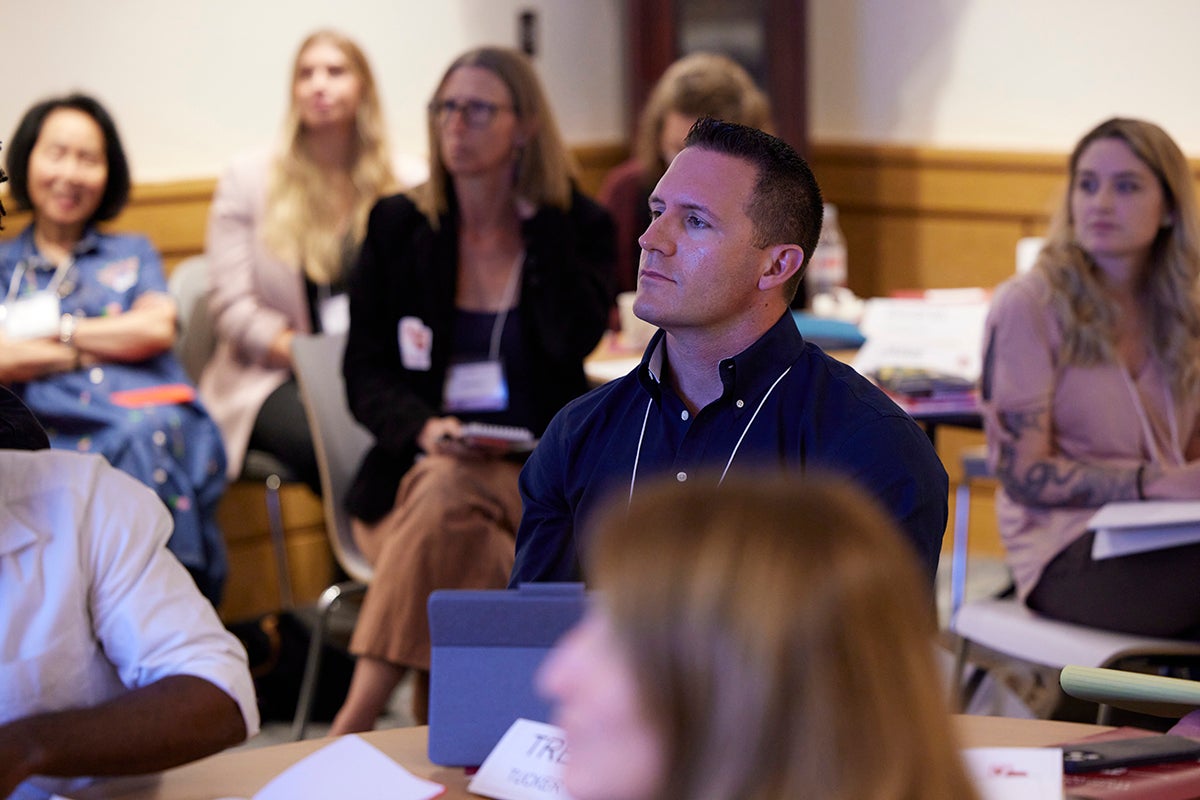
Trey Tucker, a licensed therapist with more than 1.1 million followers on TikTok, said he appreciated the chance to connect with faculty. “It can be hard for me to know which research is legitimate, so I wanted to be able to hear it right from the people who are doing the cutting-edge work,” he said.
While the program was set up for creators to learn new science, participating faculty said that they also saw great value in building relationships with TikTok influencers.
“We always think of ourselves as the experts, but they have expertise, too—very valuable expertise,” said Vish Viswanath, the Lee Kum Kee Professor of Health Communication. He met with a small group with creators to discuss better ways to research the benefits of social media. “How do we make this a two-way street?” he asked.
Bryn Austin, professor in the Department of Social and Behavioral Sciences, told the creators that scientists and influencers should work together more often, teaming up to use the power of social media to highlight research that might otherwise languish unnoticed in academic journals. “You all are the storytellers,” Austin told the creators. “We need each other.”
Yarnell is seeking funding to expand the summit concept to reach more mental health creators and bring more high-quality content to social media. In the August program’s closing session, the creators expressed interest in working with one another and the CHC to amplify specific messages, perhaps around World Mental Health Day in October.
“If you got everyone in this room to share a public health message, it would have a huge impact,” said Kate Speer, a creator who attended with her service dog, Waffle. “There is so much power here.”
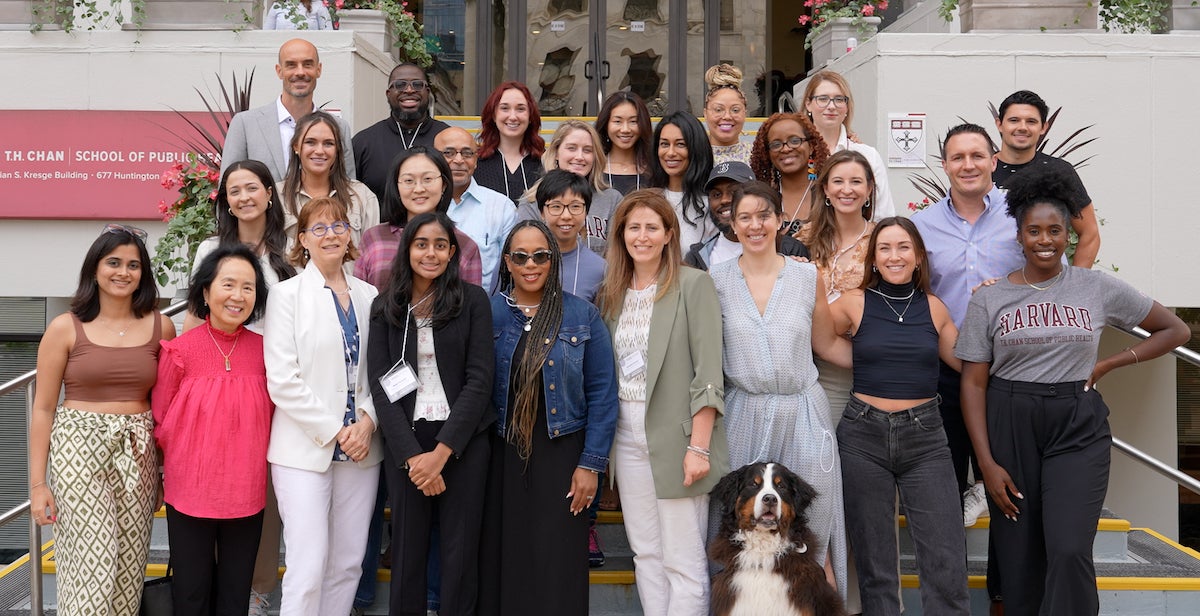
Photos: Kent Dayton, Patrick Carey
Learn more
Read Harvard Gazette coverage of the panel on men and mental health: Strong, silent, and suffering inside
